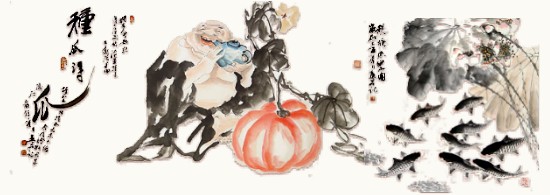A bill to make black magic a crime in Indonesia
October 10, 2003
In this edition of Indonesian Mediawatch a move to make the practice of black magic a crime under a new bill in the Criminal Law Code Welcome to the programme.
Mysterious deaths have resulted in a lot of gossip in the village of Cimuti in Cianjur , West Java. A few weeks ago, a resident Wak Onit started to vomit blood before dying mysteriously. The same thing happened to his son Acep. Both of them were healthy. The Indonesian newsmagazine Tempo drew a connection between these and other mysterious deaths and the practice of black magic by a village security guard called Sukmana who had problems with many of the residents there. So how are these black magicians dealt with ? Tempo says
Traditionally, the people of Cianjur have dealt with allegations of black magic under a system of public retribution. They claim that police are powerless to handle these cases due to difficulties involved in proving such claims.
Today, the country's legal system is finding it increasingly difficult to settle cases involving public retribution.
Legal observers claim that public retribution cannot guarantee justice since it is tainted by personal judgement in the absence of clear evidence.
Now the government has decided to act on this. Recently Minister of Justice and Human Rights Yusril Ihza Mahendra came up with a bill that included provisions on black magic A special article in the new criminal law code defines santet or the practice of black magic as follows:
Anyone who declares himself to have magic powers , offers, or provides services to other people and as a result of such actions causes death, mental or physical harm , shall be liable for a maximum penalty of a five year prison sentence.
There are differences of opinion on whether the practice of black magic should be included in the draft bill. Kusnadi, an anthropologist in Jember State University feels that it would be near impossible to prove the practice of black magic .
He expressed concern that the provision could be misused by individuals to make false allegations : the element of proof not based on material evidence.
Former Supreme Court Judge Mangkoedilaga also has doubts about whether practitioners of black magic or those who seek the services of such magicians will confess to this practice. There is also another important issue here.
How can anyone be certain that that black magic can result in the death of another person? There could be a number of alternative reasons for death.
One religious leader Kiai Luthfi Akhmad however supports the idea of including the provision in the draft bill.
According to Akhmad, requests for black magic are usually made by people other than the practitioner . "I have read that several Western nations allow for prosecution of black magic based on witness testimonies," said Akhmad without specifying the countries
According to the Criminal Law Code draft, evidence can be in the form of confessions, or testimonies from a person who has sought the services of the practitioners of black magic . Whether or not the black magic worked is not important. Minister Yusril Izha Mahendra reiterated this point when he said
The issue is not the death of the person who was cursed, but the relationship of the person who sought such services to the alleged practitioner.
In the final analysis, Tempo says
When matters of santet , as the practice of black magic is colloquially known enter the formal legal sphere, reactions for and against it are bound to emerge . One camp considers santet to be part of an irrational world, unscientific, supernatural, the work of swindlers. The other camp thinks the opposite. It is scientific and can be studied to produce real evidence. Yet if the two camps remain poles apart , how Can anyone hope to turn santet into a positive legal product? Besides , the santet commonly referred to is more of a Javanese culture , while other kinds of harmful black magic can actually be found in many parts of Indonesia with quite different characteristics.
It will be interesting to see what becomes of this draft bill
SOURCE A bill to make black magic a crime in Indonesia, October 10, 2003
A bill to make black magic a crime in Indonesia, October 10, 2003
 | Kinjo A bill to make black magic a crime in Indonesia Jun 4 2005, 03:34 AM
| Kinjo A bill to make black magic a crime in Indonesia Jun 4 2005, 03:34 AM
 The White Chaos I couldn't help but to laugh at that, but then... Apr 19 2006, 02:08 AM
The White Chaos I couldn't help but to laugh at that, but then... Apr 19 2006, 02:08 AM

 Vagrant Dreamer I couldn't help but to laugh at that, but then... Jun 29 2006, 04:01 PM
Vagrant Dreamer I couldn't help but to laugh at that, but then... Jun 29 2006, 04:01 PM
 Chorozon Its a possibility that sorcery etc could be made a... Jun 29 2006, 06:36 PM
Chorozon Its a possibility that sorcery etc could be made a... Jun 29 2006, 06:36 PM
 nyechna Donīt forget than in the UK, Helen Duncan was pros... Sep 4 2006, 07:27 AM
nyechna Donīt forget than in the UK, Helen Duncan was pros... Sep 4 2006, 07:27 AM
















 Jun 4 2005, 03:34 AM
Jun 4 2005, 03:34 AM













